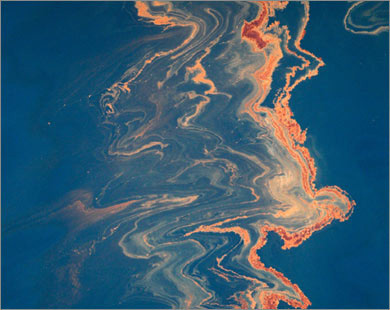A massive underwater oil plume in the waters of the Gulf of Mexico may be degrading faster than expected, marine scientists found in a new study to be published Thursday, marking some good news for wildlife and Gulf Coast residents, dpa reported.
The plume, caused by the months-long BP oil spill, was being degraded at a fast pace by microbes in the water, according to scientists from the Berkeley National Laboratory.
The findings, to be published Thursday in the journal Science, could ease concerns after a separate study last week detailed an underwater plume found in June, which stretched at least 35 kilometres, was 200 metres high and up to 2 kilometres wide.
The degradation by microbes "appears to be one of the major mechanisms behind the rapid decline of the deepwater dispersed oil plume that has been observed," said Terry Hazen, a microbial ecologist with the Berkeley lab.
Government authorities are relying on the work of various scientists to help them determine the extent of oil that remains in the Gulf. BP has spent billions of dollars cleaning up the spill, which has brought oil to the shores of four southern US states.
BP last month managed to cap the ruptured oil well, three months after the April 20 Deepwater Horizon rig explosion caused the worst oil spill in US history.
The British oil company is currently in the process of sealing off the well for good, a process that will likely be completed in mid- September. dpa cc aw Author: Chris Cermak






